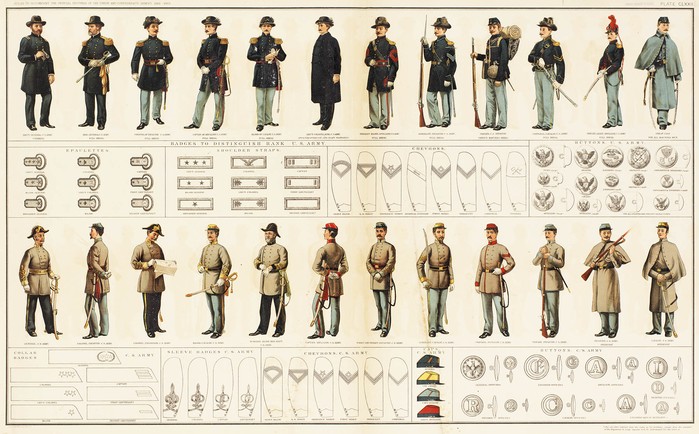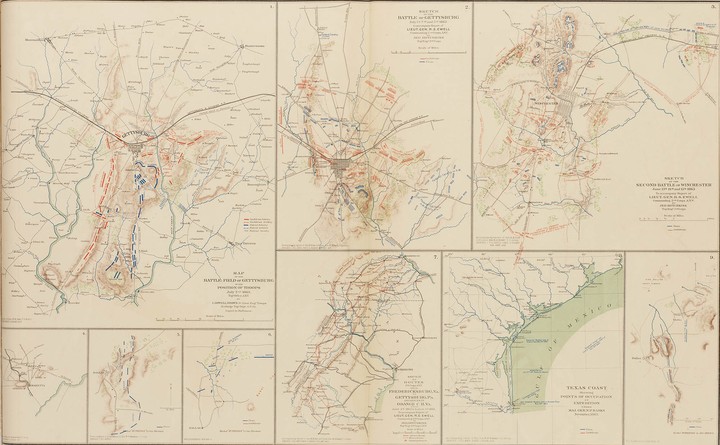Atlas to accompany the official records of the Union and Confederate armies, compiled by Calvin D Cowles, 1891–95
Government Printing Office, Washington
NF911.73/2 Vol 3
The blue and the grey
Bound within the atlas which accompanied
the official government report on the American Civil War (1861-1865), is an
illustration of the uniforms worn by both sides; the Union troops of the United
States and those of the south, the Confederacy.
In five years, unprecedented bloody
battles with names like Shiloh, Antietam and Gettysburg raged, dividing the nation. An
estimated 620,000 men, around 2% of the population lost their lives in the five
year war.
The battle of Gettysburg
By Elise Edmonds
The battle of Gettysburg, Pennsylvania began on 1 July 1863 and was the
bloodiest battle of the Civil War. Confederate General, Robert E. Lee led his
forces in their second invasion of the North. Major-General George Meade
commanded his 94,000-man Army of the Potomac to pursue the Confederates.
Around 51,000 soldiers from both armies were killed, wounded, captured
or missing in the three-day battle.
Four months after the battle, President
Lincoln gave his powerful Gettysburg Address at the dedication ceremony for
Gettysburg's Soldiers National Cemetery;
Four score and seven years ago our fathers brought
forth on this continent, a new nation, conceived in Liberty, and dedicated to
the proposition that all men are created equal.
Now we are engaged in a great civil war, testing
whether that nation, or any nation so conceived and so dedicated, can long
endure. We are met on a great battle-field of that war. We have come to
dedicate a portion of that field, as a final resting place for those who here
gave their lives that that nation might live. It is altogether fitting and
proper that we should do this…
Northern victory in 1865 ensured that the United States remained as one
nation and ended the institution of slavery that had divided the country from
its beginning.



 Back to list
Back to list